If you have a cat, there might come a time when they need to wear something called an Elizabethan collar. You might also hear it called an E-collar or the “cone of shame.” It can look a little funny—or even uncomfortable—but it’s actually very important.
An e-collar for cats helps protect your furry friend while they heal. It keeps them from licking, biting, or scratching wounds or stitches. This helps them recover faster and stay safe.
In this simple guide, we’ll go over what an e collar for cats is, why your cat might need one, the different types available, and how to help your cat get used to wearing it. Let’s dive in!

What is an E-collar?
How to Choose the Right E-collar for Your Cat?
Picking the right e collar for cats is important. It needs to work well, but also feel okay for your cat to wear. Here are the main things to think about:
✔️ Size and Fit
The collar should be snug, but not too tight. It shouldn’t press on your cat’s neck or make it hard to breathe. Measure your cat’s neck and add 2–3 inches to get the right size. A good fit means the collar reaches just past your cat’s nose.
✔️ Material and Comfort
Cats have different personalities. Some are fine with a hard plastic cone, while others hate it. If your cat gets nervous or stressed easily, try a soft fabric or inflatable e collar for cats instead. These can be more comfy.
✔️ Durability and Cleaning
Think about how long your cat will wear the collar. Plastic ones are easy to clean—just wipe them off. Fabric ones might need to go in the wash. Choose what works best for your daily routine.
✔️ Visibility and Movement
Your cat still needs to eat, drink, and move around. A clear plastic collar or one that lets them see out the sides can help them feel less confused. Make sure the collar doesn’t block their view too much or make walking hard.
Challenges of Living with a Feline Elizabethan Collar
⭕ Movement Limitations
An e collar for cats can block side vision, making it hard for cats to move around. They may bump into walls or furniture and struggle with walking, jumping, or using tight spaces until they adjust.
⭕ Eating and Drinking Difficulties
An Elizabethan collar for cats can make it hard to reach food and water. Cats may eat or drink less because the collar gets in the way. Food might stick inside the collar, and water can spill.
Using wide, raised bowls can help your cat eat and drink more easily.
⭕ Sleep Disruption
Cats sleep 12–16 hours a day, but an E-collar can make it uncomfortable. The collar may press on their neck or bump into things, waking them up. Some favorite sleeping spots may also be too tight to fit with the collar on.
⭕ Litter Box Challenges
Perhaps the most significant issue for E-collar wearing cats involves using the litter box. This is especially problematic with covered or enclosed litter boxes, which become nearly impossible to navigate with the collar.
Covered boxes present multiple obstacles:
- The entrance may be too small for a cat wearing a collar
- The enclosed space limits movement and turning ability
- The low ceiling may catch on the collar's edge
This is where an open litter box becomes essential. Without barriers to entry or movement restrictions, an open design allows your cat to maintain proper bathroom habits even with limited mobility.
The Neakasa open-top litter box provides the accessibility needed during this recovery period. Its spacious design eliminates barriers while still containing litter scatter with appropriately high sides.
How to Help Your Cat Adjust
😺 Create a Safe Environment
Make simple adjustments to your home to accommodate your cat's temporary limitation:
- Clear pathways between essential resources
- Remove obstacles at your cat's head height
- Provide wider sleeping areas with soft bedding
😺 Support Proper Nutrition and Hydration
- Elevate food and water bowls
- Use shallow, wide dishes
- Monitor intake to ensure they're getting adequate nutrition
😺 Provide Extra Comfort and Care
Your cat needs additional support during this challenging time:
- Offer gentle reassurance through regular petting
- Check the collar daily for cleanliness and proper fit
- Give supervised breaks from the collar if veterinarian-approved
Alternatives to Traditional E-collars
While E-collars are often the most effective option, there are alternatives that might work for some cats and situations:
👉 Recovery Suits
These full-body suits cover the torso and can be effective for preventing access to surgical sites or skin conditions on the body. They're not suitable for head or neck injuries.
👉 Neck Pillows
Similar to inflatable E-collars, these pillows fit around the neck and can prevent access to most body areas while being more comfortable than traditional cones.
👉 Protective Boots or Bandages
For paw or lower leg injuries, specially designed boots or bandages might be sufficient to prevent licking or chewing without the need for a full E-collar.

Conclusion
Remember that most cats only need to wear an E-collar for 1-2 weeks. While challenging, this period is temporary and necessary for proper healing. With thoughtful accommodations and extra patience, you can help your cat navigate this difficult time more comfortably.
By understanding the specific challenges your cat faces and making appropriate adjustments—particularly providing an open litter box like the Neakasa design—you're demonstrating your commitment to their health and comfort during recovery.


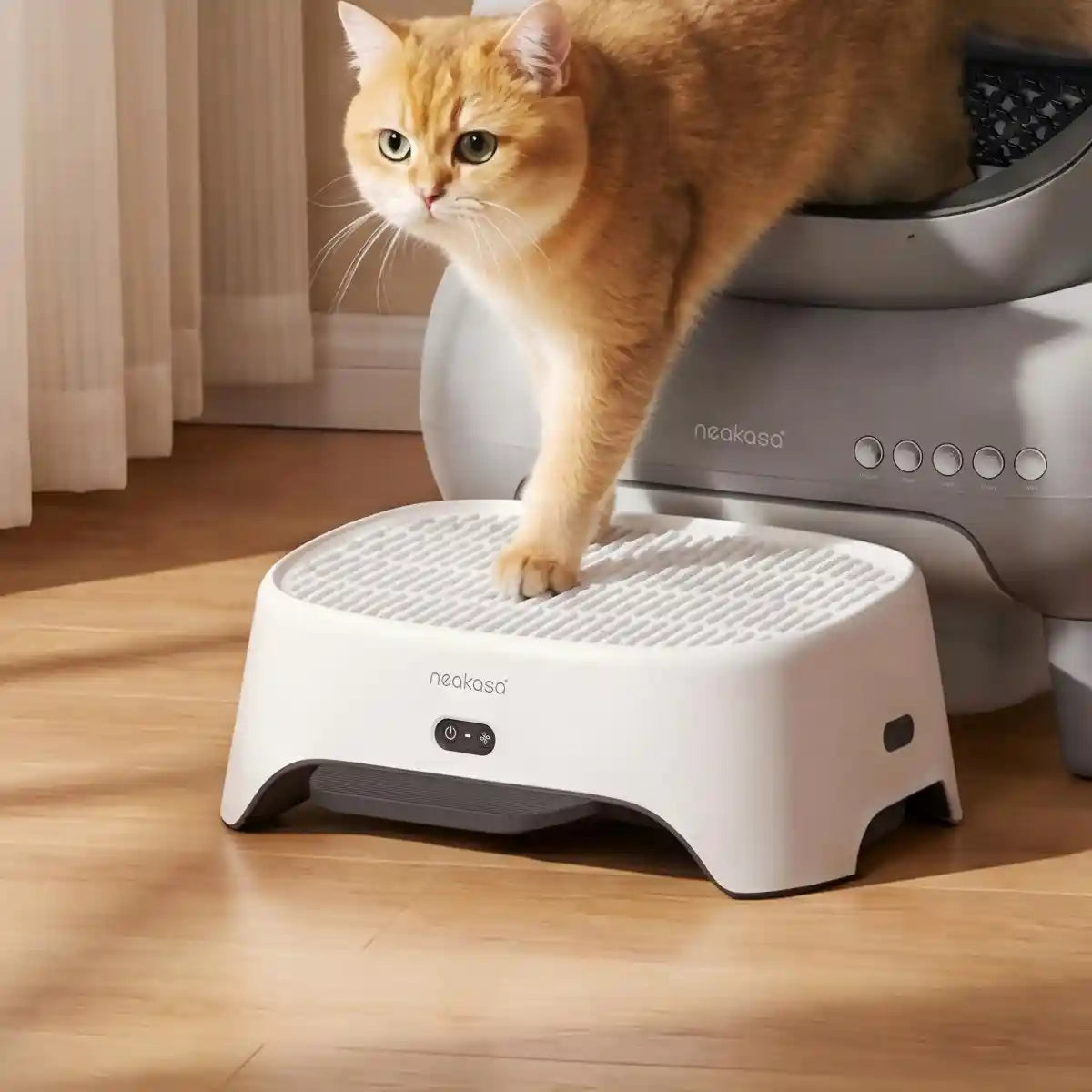
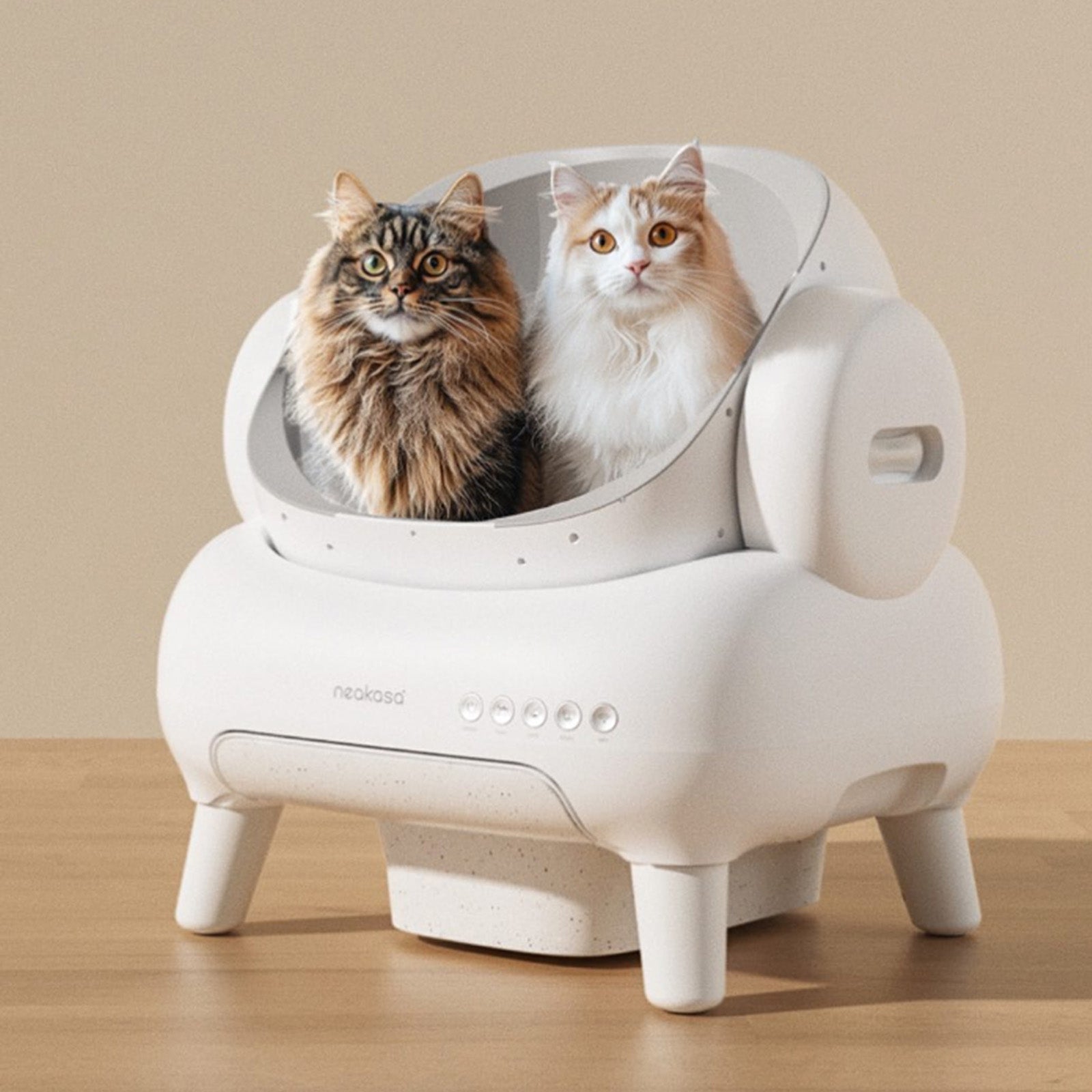
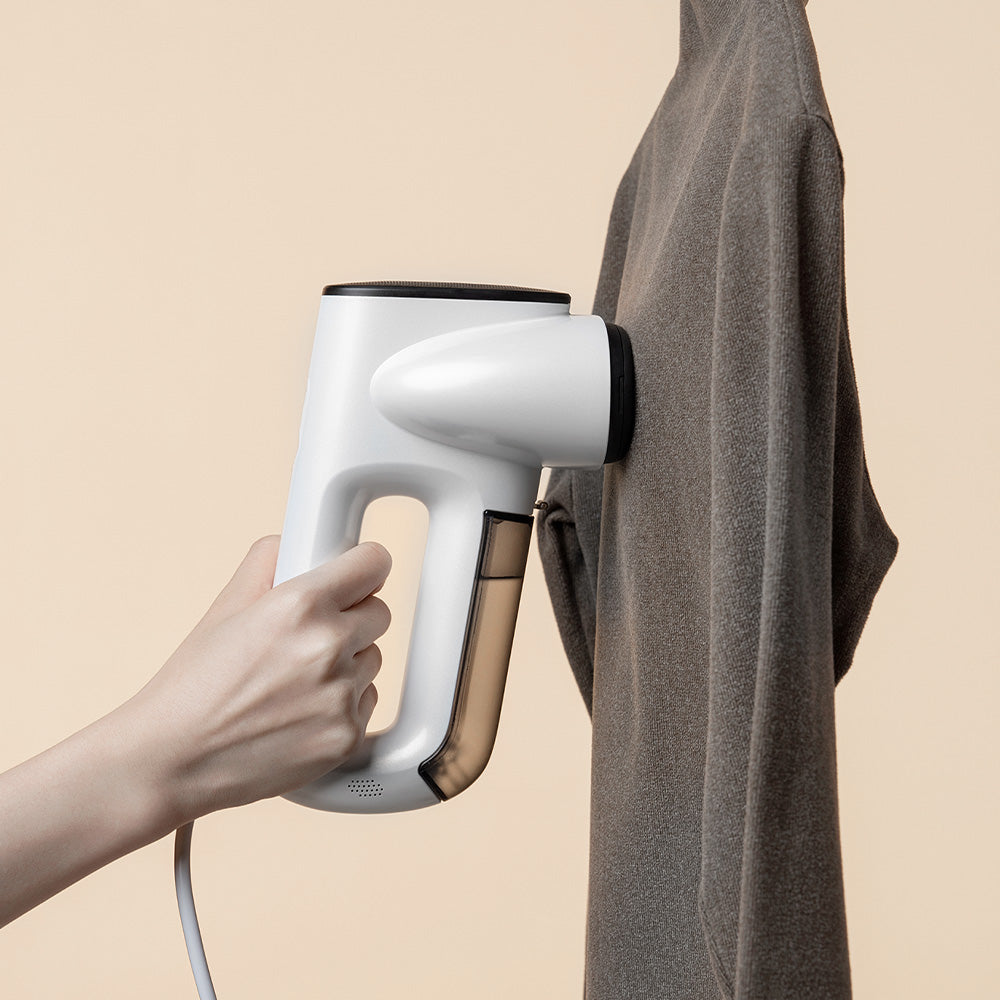
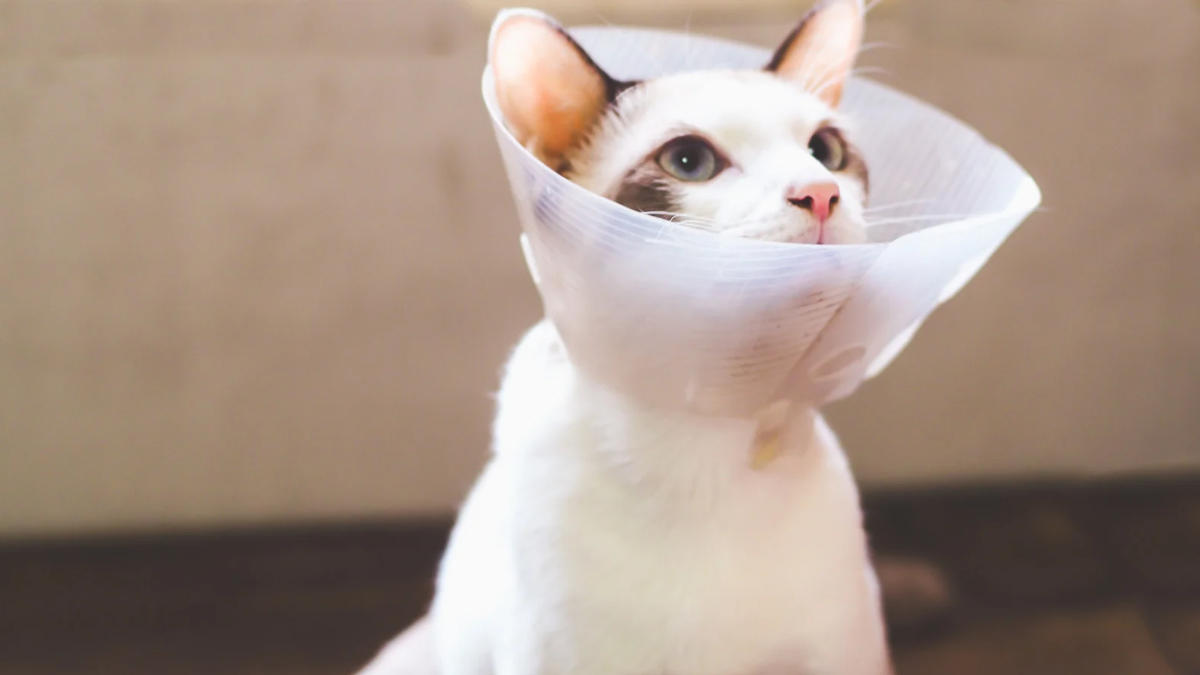


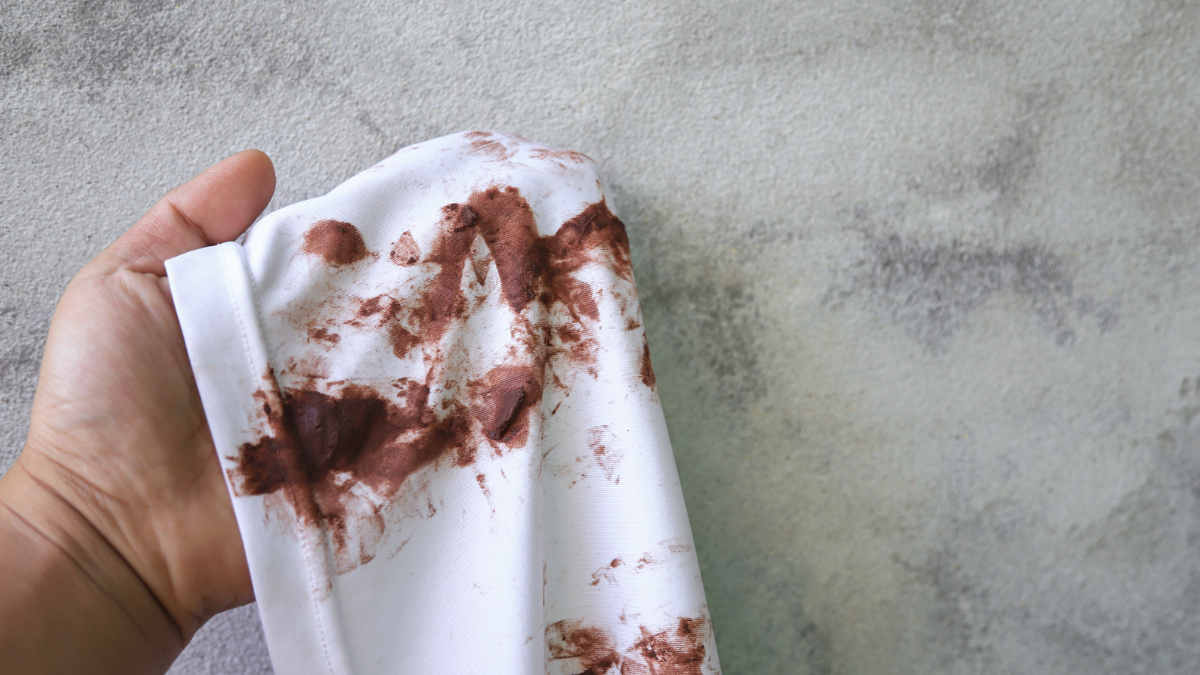

Leave a comment
This site is protected by hCaptcha and the hCaptcha Privacy Policy and Terms of Service apply.